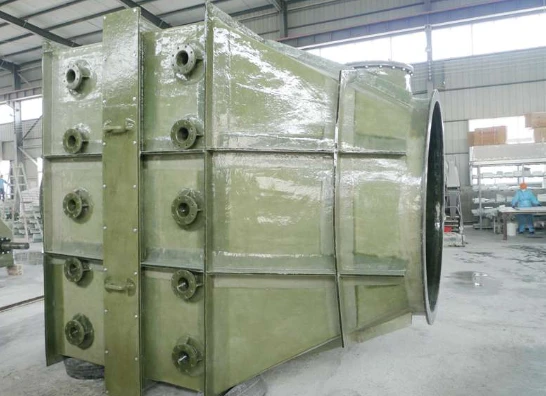
-
 Afrikaans
Afrikaans -
 Albanian
Albanian -
 Amharic
Amharic -
 Arabic
Arabic -
 Armenian
Armenian -
 Azerbaijani
Azerbaijani -
 Basque
Basque -
 Belarusian
Belarusian -
 Bengali
Bengali -
 Bosnian
Bosnian -
 Bulgarian
Bulgarian -
 Catalan
Catalan -
 Cebuano
Cebuano -
 China
China -
 China (Taiwan)
China (Taiwan) -
 Corsican
Corsican -
 Croatian
Croatian -
 Czech
Czech -
 Danish
Danish -
 Dutch
Dutch -
 English
English -
 Esperanto
Esperanto -
 Estonian
Estonian -
 Finnish
Finnish -
 French
French -
 Frisian
Frisian -
 Galician
Galician -
 Georgian
Georgian -
 German
German -
 Greek
Greek -
 Gujarati
Gujarati -
 Haitian Creole
Haitian Creole -
 hausa
hausa -
 hawaiian
hawaiian -
 Hebrew
Hebrew -
 Hindi
Hindi -
 Miao
Miao -
 Hungarian
Hungarian -
 Icelandic
Icelandic -
 igbo
igbo -
 Indonesian
Indonesian -
 irish
irish -
 Italian
Italian -
 Japanese
Japanese -
 Javanese
Javanese -
 Kannada
Kannada -
 kazakh
kazakh -
 Khmer
Khmer -
 Rwandese
Rwandese -
 Korean
Korean -
 Kurdish
Kurdish -
 Kyrgyz
Kyrgyz -
 Lao
Lao -
 Latin
Latin -
 Latvian
Latvian -
 Lithuanian
Lithuanian -
 Luxembourgish
Luxembourgish -
 Macedonian
Macedonian -
 Malgashi
Malgashi -
 Malay
Malay -
 Malayalam
Malayalam -
 Maltese
Maltese -
 Maori
Maori -
 Marathi
Marathi -
 Mongolian
Mongolian -
 Myanmar
Myanmar -
 Nepali
Nepali -
 Norwegian
Norwegian -
 Norwegian
Norwegian -
 Occitan
Occitan -
 Pashto
Pashto -
 Persian
Persian -
 Polish
Polish -
 Portuguese
Portuguese -
 Punjabi
Punjabi -
 Romanian
Romanian -
 Russian
Russian -
 Samoan
Samoan -
 Scottish Gaelic
Scottish Gaelic -
 Serbian
Serbian -
 Sesotho
Sesotho -
 Shona
Shona -
 Sindhi
Sindhi -
 Sinhala
Sinhala -
 Slovak
Slovak -
 Slovenian
Slovenian -
 Somali
Somali -
 Spanish
Spanish -
 Sundanese
Sundanese -
 Swahili
Swahili -
 Swedish
Swedish -
 Tagalog
Tagalog -
 Tajik
Tajik -
 Tamil
Tamil -
 Tatar
Tatar -
 Telugu
Telugu -
 Thai
Thai -
 Turkish
Turkish -
 Turkmen
Turkmen -
 Ukrainian
Ukrainian -
 Urdu
Urdu -
 Uighur
Uighur -
 Uzbek
Uzbek -
 Vietnamese
Vietnamese -
 Welsh
Welsh -
 Bantu
Bantu -
 Yiddish
Yiddish -
 Yoruba
Yoruba -
 Zulu
Zulu
Exploring the Benefits and Uses of Fiberglass Boats in Marine Applications
The Versatility and Advantages of Fiberglass Vessels
Fiberglass vessels are a popular choice in the maritime industry and recreational boating due to their unique properties and advantages. Composed primarily of glass fibers reinforced with a resin matrix, these vessels boast a combination of strength, durability, and lightweight construction that sets them apart from traditional materials such as wood and metal. This article explores the benefits and various applications of fiberglass vessels, showcasing why they have become the material of choice for many boat builders and marine enthusiasts.
Durable and Low Maintenance
One of the most significant advantages of fiberglass vessels is their durability. Fiberglass is resistant to rot, corrosion, and pests—a major advantage over wooden boats that are susceptible to deterioration from moisture and insects. Additionally, fiberglass's composition means that it can withstand harsh marine environments without significant wear and tear. While metal vessels may suffer from rust and corrosion, fiberglass requires far less maintenance over time. A simple wash with soap and water occasionally is usually enough to keep a fiberglass vessel looking new.
Moreover, fiberglass is less prone to deformation and structural failure than wood or aluminum, which makes it an ideal choice for various watercraft, from small fishing boats to large yachts. The longevity of fiberglass boats means that owners can enjoy their vessels for many years without needing significant repairs or replacements.
Lightweight and Fuel-Efficient
Another major benefit of fiberglass vessels is their lightweight properties. Compared to metal or wooden counterparts, fiberglass boats can be constructed to weigh significantly less without sacrificing strength. This lightweight nature not only makes them easier to transport and launch but also enhances fuel efficiency. A lighter vessel requires less power to navigate, which can result in lower fuel consumption—a critical factor in today's eco-conscious world.
Increasing fuel efficiency also means that vessels can achieve higher speeds with smaller engines, which can reduce initial costs and ongoing expenses for owners. Boaters can enjoy faster trips while being kinder to the environment and their wallets.
fiberglass vessel

Design Flexibility and Aesthetic Appeal
Fiberglass's malleability also allows for creative and innovative designs. Unlike wood, which must be shaped and cut in specific ways, fiberglass can be molded into a wide variety of shapes and sizes. This flexibility permits boat builders to create unique and aesthetically pleasing designs that cater to the tastes of different consumers. Whether for high-performance racing or leisurely cruising, fiberglass can accommodate a vast range of styles, deck layouts, and features.
Additionally, fiberglass can be easily painted and finished, allowing for custom colors and graphics that cater to personal preferences. The combination of design versatility and visual appeal makes fiberglass vessels a favorite in the recreational boating market.
Environmental Considerations
As the maritime industry looks towards sustainability, fiberglass has also begun to benefit from advancements that make it more eco-friendly. Many manufacturers are now utilizing recycled materials in the production of fiberglass, decreasing the overall environmental impact. Furthermore, the longevity and durability of fiberglass vessels mean that they do not need to be replaced as often as boats made from less resilient materials, leading to less waste over time.
Conclusion
In conclusion, fiberglass vessels offer numerous advantages that make them a preferred choice for boat builders and enthusiasts alike. Their durability, lightweight nature, low maintenance requirements, design flexibility, and potential for eco-friendliness position them favorably in a competitive market. As the world of boating continues to evolve, fiberglass vessels stand out as a practical and appealing option for those looking to enjoy the water—be it for leisure, sport, or work. With technology and manufacturing processes continually improving, the future of fiberglass in maritime applications looks brighter than ever.









